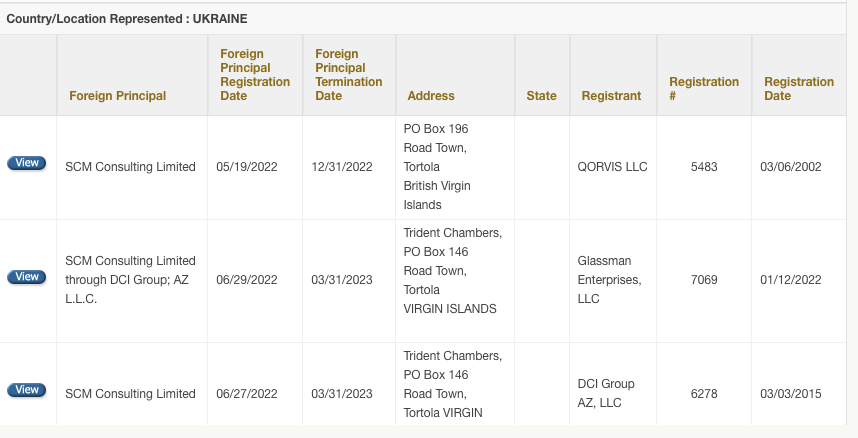Use U.S. records for cross-border investigations
Even American reporters may not know about these U.S. databases and public records that disclose international information
Several times in recent years, I’ve had the opportunity to train non-U.S. journalists—at global conferences or in Zoom sessions— in how find information and data held in U.S. government public records and databases for stories relating to their home countries.
Data collected and made available by U.S. agencies may not be perfect. But it is official information that can be cited to government sources, and often revelatory to researchers whose countries provide little transparency, or have not made basic information available in electronic form.
But I’ve often been surprised by how many U.S. journalists attending these events are unaware of many of the sources in my class handouts. We may not get to use these sources regularly, but when a story touches on information within them, you’ll find it useful to keep these tools in your toolbox.
Each of these sources have relevance in U.S. stories too, from foreign lobbying and economic sanctions, to company records, immigration data, real estate ownership, and military sales and training. These are records and documents that can bolster local, national and international investigative reporting. Sometimes, they’re just useful for fact-checking.
And it’s a vital part of the news researcher mindset to have a storehouse of knowledge on public records and maintain an updated collection of links and readme guides and instructions.
Below today and continuing next week, I’ll describe these valuable U.S. public records as I showed journalists in Tunisia last year that provide insights on topics including:
• Your country’s lobbying for US influence and money
• US funding and arms sales to your country
• US contracts and subcontractors in your country
• Property owned by your power players in the U.S.
• Companies owned by your power players in the U.S.
• U.S. sanctions on individuals, groups and companies
Tracking Foreign Agents
FARA is the Foreign Agents Registration Act, where lobbyists for foreign countries, political parties and foreign government-controlled companies must register as agents of those countries. For the basics about FARA, click here.
Finding Washington Lobbyists
You can browse the filings of registered foreign agents here. The data goes back to 1938!
If you search for, say foreign agents for Tunisia, you will find are currently no active registrants.
But you can see former (inactive) registrants from Tunisia here.
Key Details
Foreign agents are required to report many details about their work for foreign entitities.
FARA requires certain agents of foreign principals who are engaged in political activities or other activities specified under the statute to make periodic public disclosure of their relationship with the foreign principal, as well as activities, receipts and disbursements in support of those activities.
So these kinds of specific details are included in the many documents filed and available in the database.
Check out the Supplemental Statements for six-month updates, and you’ll find information on the agents contacts with journalists at various media, details on Uber rides & lunches, and amounts paid to the primary registrant for retainers and fees.
Lobbying U.S. Congress
Documents filed to register and lobby U.S. Congress are not as detailed as the FARA filings. But you can find who is lobbying for a company in the U.S. or abroad, what issues they are lobbying about, what they are paid, and more.
Search for lobbyist names, lobbying firms and their clients here:
For example, here are U.S. lobbyists representing Ukrainian billionaire Rinat Akhmetov’s company SCM Holdings until late 2002-early 2023, but then terminated:
HIGHLIGHT: LDA lobbying registrations include information on lobbyists’ former employment as executive or legislative branch officials — the famous “revolving door” where former officials get lucrative lobbying positions or start up their own lobbying firms.
For lobbyists: “If any person listed in this section has served as a “covered executive branch official” or “covered legislative branch official” within twenty years of first acting as a lobbyist for the client, state the executive and/or legislative position(s) in which the person served.”
In the example shown for SCM Consulting Limited, above, the principal of Glassman Enterprises LLC, James K. Glassman, served as “Under Secretary of State for Public Diplomacy and Public Affairs; Chairman, U.S. Broadcasting Board of Governors; Investor Advisory Committee, U.S. Securities and Exchange Commission.”
Stay tuned for Part 2
The first week of the new year is moving on fast, and this piece is getting longer, so I’m going to tackle arms sales, sanctions, contracts, corporations and property in stories to follow.
I would appreciate your comments and suggestions. Thanks for subscribing!








